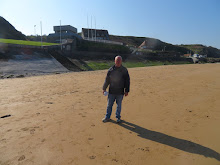I'm reading The Age of Innocence by Edith Wharton about decadent highbrow New York society in the 1870s. It won the 1921 Pulitzer Prize for literature. It's a great book.
I knew from the start that the book wouldn't end well for its protagonist, Newland Archer, a young man who resists the hypocrisy and self-absorbed nature of upper-crust haughty society even as he is caught up in it. He is enmeshed in a chaste but cloying love triangle which he hastily thinks he solves by marrying his fiancee, May Welland, quickly at its onset, when the exciting but very bohemian Countess Olenska shows up from Europe to tempt him, from whence she has fled her husband.
Newland thinks he's ahead of his time by wishing for and ascribing to women independence, hence his attraction to May's cousin, Ellen Olenska, the countess who has the audacity to leave her husband and live independently, frequenting gathering places of writers and actors, the lessor people of society who have to toil for their daily bread. But Newland has proposed to May, whom he considers to be a blank slate to be filled up with knowledge he imparts to her from his vast, eclectic reading.
Newland, an attorney, is assigned to Ellen's case as she seeks to file for divorce. Following his firm's orders and against his better judgment, he advises her not to pursue the matter since proper people don't divorce and she is a part of the highfalutin society even though she is different. There is mutual attraction between them, the married lady and the engaged man, and here is the author's description of their first chaste moment of almost irresistible physical desire. Ellen, "dressed as if for a ball," is inspecting herself in a mirror by the mantelpiece in the drawing room when Newland re-enters, having seen Ellen's aunt off to her waiting carriage, which will soon return for the countess.
"Madame Olenska did not move when he came up behind her, and for a second their eyes met in the mirror; then she turned, threw herself into her sofa-corner and sighed out: 'There's time for a cigarette.'
"He handed her the box and lit a spill for her; and as the flame flashed up into her face she glanced at him with laughing eyes and said: 'What do you think of me in a temper?'
"Archer paused a moment; then he answered her with sudden resolution: 'It makes me understand what your Aunt has been saying about you.'
"'I knew she'd been talking about me. Well?'
""She said you were used to all kinds of things--splendours and amusements and excitements--that we could never hope to give you here.'
"Madame Olenska smiled faintly into the circle of smoke about her lips.
"'Medora is incorrigibly romantic. It has made up to her for so many things!'
"Archer hesitated again, and again took his risk. 'Is your aunt's romanticism always consistent with accuracy?'
"'You mean: Does she always speak the truth?' Her niece considered. 'Well, I'll tell you: in almost everything she says, there's something true and something untrue. But why do you ask? What has she been telling you?'
"He looked into the fire, and then back at her shining presence. His heart tightened with the thought that this was their last evening by that fireside, and that in a moment the carriage would come to carry her away."
So short, so suggestive, that magic moment in the mirror when their eyes locked. This weekend I cheated and watched the Martin Scorsese movie, filmed in 1993, even though I'm 100 pages from the end of the book. The film was mostly faithful to the book, and was filled with actual quotes from the book. Now I know how the story ends, with its devastating consequences for Newland. In the movie, Scorsese has the two clench and kiss in this scene, which as you can see, didn't happen in the book at this moment, but perhaps that was to have a scene that enlivens up an otherwise dreary and dull movie up to that point. The movie picked up steam from this point onwards.
Saturday, December 12, 2015
Subscribe to:
Post Comments (Atom)

No comments:
Post a Comment